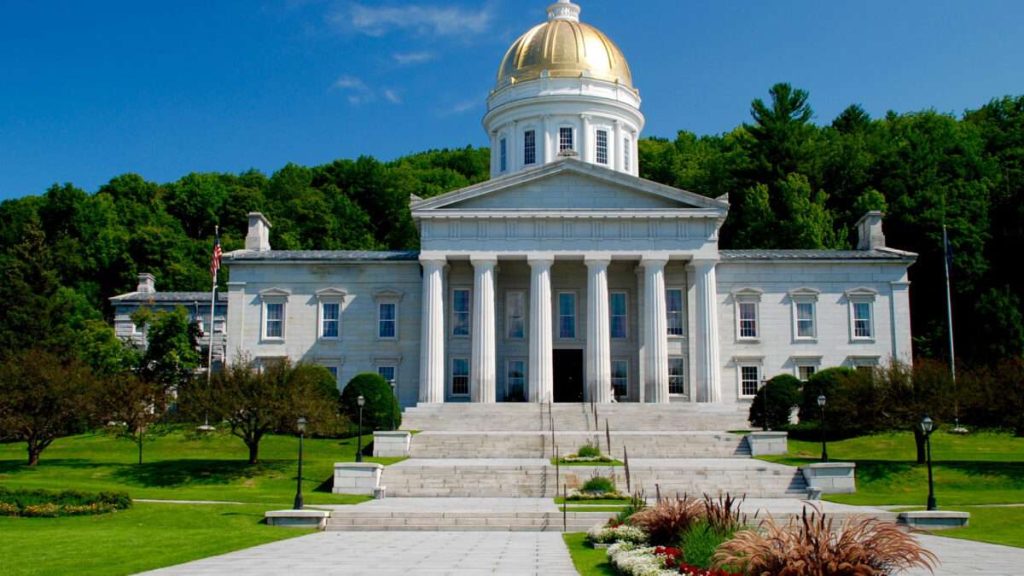
The U.S. Chamber of Commerce and the American Petroleum Institute sued the state of Vermont in federal court last week over its Climate Superfund Act. The plaintiffs argue that the law violates both the U.S. Constitution and the federal Clean Air Act. If they prevail, other state superfunds, such as New York’s, are likely to face similar challenges.
Vermont’s law, which passed through both chambers of the state legislature with overwhelming support, fines domestic energy producers to fund a climate change adaptation project. (This program aims to help “human and natural communities”—left undefined—”households, and businesses in preparing for future climate-change-driven disruptions.”) Like the New York superfund, Vermont’s assesses entities that released at least a billion metric tons of carbon dioxide through fossil fuel extraction or crude oil refinement. But while New York hits companies that did this over an 18-year period, the covered period in Vermont stretches across three decades, from January 1995 to January 2025.
Vermont Treasurer Mike Pieciak has not yet released an estimate of how money the state plans to demand under the law, but in July he called for “expert opinions and advice” to calculate specific fossil fuel companies’ “relative share of climate-related loss and damage that Vermont has experienced over the past 30 years.” That information-gathering process ended in October, but the results have yet to be announced.
The plaintiffs present five principal objections to the law:
First, they say it violates the Constitution’s Supremacy Clause, since greenhouse gas emissions qualify as “pollutants” under the federal Clean Air Act and are thus regulated by the Environmental Protection Agency.
Second, they say it violates the Due Process Clause of the Fourteenth Amendment by imposing retroactive penalties arbitrarily and irrationally.
Third, they say it violates the Commerce Clause by “targeting energy producers headquartered in other States.”
Fourth, they say it violates the Eighth Amendment’s Excessive Takings Clause by selectively penalizing domestic energy producers while ignoring “the myriad end users across the world who emit the majority of greenhouse gas emissions.”
Last, they say it violates the Fifth Amendment’s Takings Clause by imposing “a substantial and disproportionate penalty…on a select group of covered energy products.”
The Climate Superfund Act became law without the signature of Gov. Phil Scott. Scott, a Republican, objected to the lack of coordination with larger states, such New York and California. He also felt the law appropriated too little ($600,000) to conduct a robust climate impact analysis and expressed concern that the legislation would invite “intense legal scrutiny from a well-funded defense.” On that last matter, at least, he was clearly correct.
The post Lawsuit Challenges Vermont Climate Program appeared first on Reason.com.






